Rapid Fire Career Panel
Interested in learning about career paths you can pursue with a PhD?
The Rapid Fire Career Panel will give you the opportunity to join small group discussions with 3 of the panelists below and learn more about their journeys and current positions.
Make the most of this opportunity to get the answers you want and need to make the best educated choice for yourself – we encourage you to prepare your questions in advance to maximize your time with each panelist!
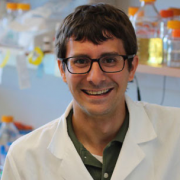
Andrew Olive, PhD
Dr. Andrew Olive is an Assistant Professor in the Microbiology and Molecular Genetics Department at Michigan State University. He has worked on bacterial pathogenesis research for over 15 years, training at the University of Kansas, Harvard Medical School, and the University of Massachusetts Medical School, prior to obtaining his own independent position. Andrew obtained his PhD in Microbiology and Immunology with a focus on the host response to intracellular pathogens. His independent research group studies the interplay between pathogen virulence strategies and the host response, with a focus on chronic infections such as Mycobacterium tuberculosis and Chlamydia trachomatis. His lab seeks to understand host responses and tissue damage during persistent infection. Dr. Olive is also passionate about educating the next generation of scientists. His duties include managing and running a research program, developing and teaching immunology/microbiology curriculum for both undergraduates and graduate students, and engaging scientists and the general public with our work and outreach. His goal is to develop critical thinkers who can ask questions, solve problems, and work collaboratively to advance research and prepare trainees for whatever career goals they may have.
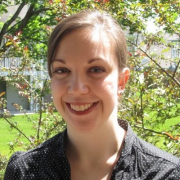
Catherine Stewart, PhD
Dr. Catherine Stewart received her PhD in Microbiology-Immunology from Northwestern University in Chicago. After completing a short post-doctoral fellowship at the University of Illinois - Chicago, Catherine held a variety of positions including, scientist for Unilever and start-up company Tangen Biosciences, adjunct faculty at Fairfield University and consultant/volunteer at the Yale Peabody Museum of Natural History. For the past five years, she has worked as a research information scientist at the biopharmaceutical company AbbVie. Her current responsibilities include providing literature and patent information on biological topics, such as drug targets and antibody sequences, to intellectual property attorneys.
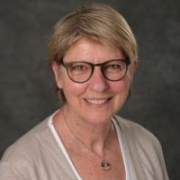
Cheryl Sisk, PhD
Dr. Cheryl Sisk serves as Associate Dean for Faculty Development in the College of Natural Science. In her role as Associate Dean, she is responsible for implementing college policies and practices for reappointment, promotion, and tenure (RPT) for tenure system faculty, as well as promotion and advancement for fixed term faculty and academic specialists. Dr. Sisk also leads college-level faculty development programs such as new faculty orientation and grant writing and RPT workshops, and she works individually with faculty to help them navigate their professional development and advancement at MSU. Dr. Sisk completed her PhD in Psychobiology/Neuroscience at Florida State University. She completed postdoctoral training at Northwestern University and the University of Texas at Austin. In 1985, Dr. Sisk joined the faculty at Michigan State University in the Department of Psychology and Neuroscience Program. Her pre-clinical research program is on the development of brain and behavior during puberty and adolescence, with an eye toward sex differences in developmental trajectory. She has trained eleven PhD students and ten postdocs, almost all of whom are currently pursuing science-related careers in academia or government. Dr. Sisk served as director of the MSU graduate Neuroscience Program from 1998-2011 and is currently a University Distinguished Professor in Neuroscience and Psychology.
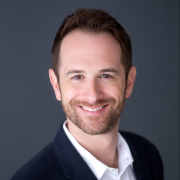
Jason Moser, PhD
Dr. Jason Moser received his B.A. in Psychology from Pennsylvania State University and his M.A. and Ph.D. in Clinical Psychology from the University of Delaware. Prior to arriving at MSU as an assistant professor and director of the MSU Clinical Psychophysiology Lab (CPL), Dr. Moser completed a one-year clinical internship at the Boston Consortium in Clinical Psychology where he received training in the treatment of Post-Traumatic Stress Disorder (PTSD) in military veterans. Dr. Moser’s previous clinical training was at the University of Pennsylvania’s Center for the Treatment and Study of Anxiety. Dr. Moser’s interests focus on the ability to regulate cognition, emotion, and behavior. Specific interests are in understanding their underlying mechanisms and in examining their clinical significance in terms of their roles in the development, maintenance, and treatment of anxiety and depression. His work lies at the intersection of clinical, cognitive neuroscience, social-personality, and developmental research. Dr. Moser aims to advance our knowledge of regulatory abilities across the range of normal to abnormal functioning through a multi-method approach, in addition to building integrative models of how they operate.
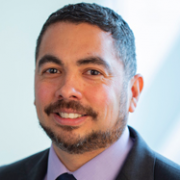
John Vasquez, PhD
Dr. John Vasquez is the Director of Assessment and Professional Development in the Graduate School at the Van Andel Institute (Grand Rapids, MI). As such, he is responsible for the assessment and evaluation of programs and courses within the Graduate School, oversees its program review and accreditation initiatives and creates professional development opportunities for grad students and faculty. With more than 20 years of experience in higher education at both the University of Michigan and Michigan State University, Dr. Vasquez’s work focused on enhancing evidence-based best practices in graduate education. Dr. Vasquez received his PhD in Higher, Adult and Lifelong Education (HALE) from Michigan State University, where his research focused on career and professional development in graduate education - specifically, the effect of career orientation on the retention, completion and late state (post-candidacy) attrition of under-represented students (URM) and the psycho-social factors affecting career trajectories of URM scientists.
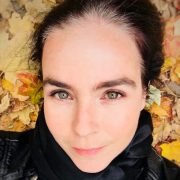
Kelly Chandler, PhD
Dr. Kelly Chandler is a Health Science Policy Analyst for the NIEHS at NIH, where she implements and manages new program initiatives, and evaluates programs’ goals and performance. Additionally, Dr. Chandler is in charge of reviewing regulations, interpreting and disseminating new legislations relevant to the NIEHS mission. She also serves as the liaison for NIH, HHS, PHS and national committees initiatives. Dr. Chandler received her PhD in Molecular Physiology and Biophysics from Vanderbilt University before joining the U.S. Environmental Protection Agency (EPA) as a Postdoctoral Fellow. During that time, she served the Society of Toxicology as the Postdoctoral Assembly Officer and the EPA Networking and Leadership Training Organization Officer.
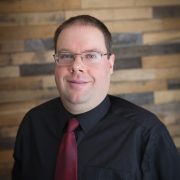
Philip Delekta, PhD
Dr. Philip Delekta received his PhD from the University of Michigan in 2011. Here, he studied cell signaling in atherosclerosis in the Cellular and Molecular Biology Program. This was followed by a postdoc position at the University of Michigan developing antivirals. During this postdoc, he received a certificate in science education from U-M and sought opportunities to guest lecture. When this lab closed unexpectedly, he took the opportunity to expand his teaching background and taught several biology courses at Eastern Michigan University. After this, he took a second postdoc position studying Staphylococcus aureus at Michigan State University. While at MSU, he taught in multiple biology departments, received additional certification in science education, and sought other opportunities to become involved in the teaching community at MSU. In January 2020, Dr. Delekta started a new position at MSU as course director of an introductory microbiology course that instructs 500 students per semester. In this position, he is responsible for teaching multiple sections, the overall course design, implementing current pedagogical practices, compliance with university policy, and coordinating the teaching efforts of multiple faculty, graduate students and undergraduate assistants. Most of all, he enjoys the challenge of improving student outcomes and getting to know his students and their career goals.
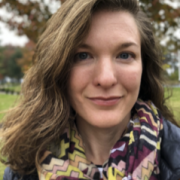
Sara Steenrod, PhD
Dr. Sara Steenrod has been assisting researchers with submissions to a number of agencies, while also developing expertise on MSU’s ability to support the Broader Impacts requirements for NSF proposals. Dr. Steenrod received her Ph.D. in neuroscience from Columbia University, then completed a postdoctoral fellowship at Rockefeller University, studying the neural mechanisms underlying visual attention. Prior to joining MSU, Dr. Steenrod served as a Scientific Editor for the Institute of Clinical and Translational Sciences at Washington University in St. Louis. In this role, she worked with faculty on manuscripts, presentations, and grant proposals targeting a variety of funding mechanisms.
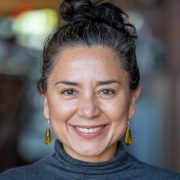
Sarynna Lopez Meza, PhD
Dr. Sarynna Lopez Meza joined the Great Lakes Bioenergy Research Center as a Research Coordinator in 2010. She supports coordinating the research efforts on the multi-scale modeling, switchgrass productivity, and environmental performance teams of the center. Dr. Lopez Meza likes interacting with people from various backgrounds, and the ability to communicate with people in different disciplines has been the most rewarding aspect of her job. Dr. Lopez Meza received a Ph.D. in environmental engineering from Vanderbilt University in Nashville, TN (2006), followed by a postdoctoral research position at the Federal Institute for Materials Research and Testing in Berlin, Germany (2007-2009).

Shalini Nag, PhD
Dr. Shalini Nag is an entrepreneur and culture strategist and founder of EvidaSolve, whose mission is to create inclusive, high-performance workplace cultures and unleash the full potential of emerging STEM leaders. Before establishing her own firm, Shalini was a consultant at the Boston Consulting Group (BCG), prior to which, she was a scientist at Yale University and the Agency for Science, Technology and Research, Singapore. Dr. Nag received her PhD in Structural Biology from the National University of Singapore. Dr. Nag has a breadth of experience across different functions and industries including healthcare, pharmaceuticals, medical devices, retail, energy and telecommunications. She is particularly skilled at growth strategy development, market development, organizational transformation, digital transformation, cost and operational efficiency improvement. She also has extensive experience with coaching, mentoring, program design and scientific teaching methods. She has worked with over 80 organizations worldwide, including several Fortune 500 companies and the World Economic Forum to create impactful transformations. Thanks to her personal and professional experiences and those of her clients, Dr. Nag brings a unique perspective on reinvention, success and navigating change, perceptions and complexity. Dr. Nag is passionate about travel, exploration and learning. She is currently learning to nurture succulents in her indoor garden.

Shannon Lynn Burton, PhD
Dr. Shannon Burton became the University Ombudsperson at Michigan State University in July 2018 after serving previously as both the Assistant University Ombudsperson and later Associate University Ombudsperson. During her tenure, she has cultivated a culture of academic integrity, guided students on goal setting and educational choices and ensured institutional compliance with federal regulations. In her role as University Ombudsperson, she seeks to make the office a touchpoint for building trust within the organization by creating a space where individuals can freely discuss their concerns in an environment that adheres to the International Ombudsman Association (IOA) Standards of Practice: confidentiality, informality, neutrality and independence. Ultimately, her goal is to develop human capital in managing conflict and improve communication skills in line with the role and purpose of the ombuds office, as well as in line with the university’s mission. Dr. Burton earned her PhD in Higher, Adult and Lifelong Education with a Specialization in Global Urban Studies from Michigan State University. She also has a Master of Science in Academic Advising (Kansas State University), a Master of Arts in Student Affairs Administration (Michigan State University), as well as a Bachelor of Arts in Russian Studies, a Bachelor of Science in Sociology, and a Bachelor of Arts in Spanish (Grand Valley State University). In 2018, she also completed a graduate certificate in Dialogue, Deliberation and Public Engagement (Kansas State University).
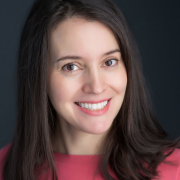
Sheril Kirshenbaum
Sheril Kirshenbaum is executive director of Science Debate, a nonprofit nonpartisan organization working to get every candidate on record on science policy. She works to enhance public understanding of science and improve communication between scientists, policymakers and the public. She currently hosts Serving Up Science at PBS Digital Studios. She also co-authored Unscientific America: How Scientific Illiteracy Threatens Our Future with Chris Mooney, chosen by Library Journal as one of the Best Sci-Tech Books of 2009 and named by President Obama‘s science advisor John Holdren as a top recommended read. At Michigan State University, she hosts "Our Table," a series of round table discussions bringing together farmers and food experts, health professionals and community members to listen to each other and foster dialogue about where our food comes from and how it impacts our health and planet. IShe holds graduate degrees in marine biology and policy. Previously, she was with the Webber Energy Group at the University of Texas at Austin’s Center for International Energy and Environmental Policy, where she was the former director of the UT Energy Poll. She has also worked for Duke University’s Nicholas Institute for Environmental Policy Solutions, was a former visiting scholar with The Pimm Group, a fellow with the Center for Biodiversity and Conservation at the American Museum of Natural History, and a Howard Hughes Research Fellow. She will be back in grad school in the Fall 2020 to complete her PhD.




